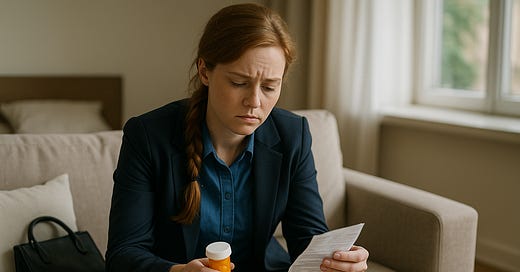👱♀️ 1. Rising Singlehood & Delayed Marriage
In OECD countries, the average age at first marriage has shifted dramatically—from mid‑20s in the 1990s to around 30.7 for women in 2020 (men ~33.1)
Nearly half of U.S. women no longer see marriage as essential, and 54% of women aged 18–40 classified themselves as single in 2023
Solo households now account for a third of UK homes, with women making up 52% of those solo dwellers
These shifts track closely with rising female labor-force participation through the late 20th and early 21st centuries. As women gain economic autonomy, their traditional "marriage market" calculus changes.
🪞 2. Partner-Selection Dynamics
YouTube analysis (e.g., by The Lotus Eaters) highlights that most women still try to “marry up” socially and economically. As female workplace status rises, the pool of adequately matched male partners shrinks—making partner selection more selective by necessity.
This dovetails with the traditional “men gatekeep commitment” narrative: men historically commit when they perceive stable resources and social status, while women, as “gatekeepers of sex,” choose whom to allow into short or long-term relational structures. Men may not be actively rebelling against women being treated preferentially by society but they aren’t happy with it and are increasingly choosing video games and porn over women who prioritise themselves and their career over their relationships, family, children and the home.
😥 3. Rising Antidepressant Usage Among Women
So is all this independence and “empowerment” making the ladies happy?
In the U.S. (2015–18), 17.7% of women used antidepressants in the past 30 days—more than twice the male rate (8.4%)
Women aged 60+ had the highest usage (~24.3%)
In England, 12% of the population (≈7 million) are on antidepressants, including 16% of women and 9% of men, with 1 in 6 women over 50 taking them long-term
U.S. data from 2009–2018 shows antidepressant usage grew from 13.8% to 18.6% among women—while men remained flat
So yes—women are more frequently prescribed and remain on these medications longer than men. Men are better able to deal with loneliness as that has always been part of the male condition whereas women have always been highly social creatures forming strong support networks and holding families together; the ephemeral nature of work relationships is far from being a satisfactory replacement for a husband, children and grandchildren.
🧩 4. Interpreting the Correlations
These trends intersect in suggestive ways:
Economic Autonomy → Singlehood
Women are working more and marrying later—or not at allDelayed Social Milestones → Isolation & Stress
Living alone, balancing career and caregiving roles, and shifting relationship expectations can contribute to anxiety and depressionAntidepressants as Coping
Widespread antidepressant use reflect high levels of anxiety and personal dissatisfaction and is perhaps treatment in lieu of societal restructuring (back) to something that gives true meaning and fulfillment.
🧭 5. Feminism & Fulfilment
If feminism's goal was helping women become "virtual men," why do so many still suffer psychologically?
Possible considerations:
Structural gaps: legal/economic gains don’t always translate into relationship satisfaction or emotional resilience.
Role overload: juggling multiple roles—careerist, partner, parent—without sufficient support can be draining.
Male disconnect: men don’t want to be in a relationship with a virtual man and so pursue other avenues, effectively rejecting a large body of “empowered” women who in turn find they have swapped the satisfaction of biological imperatives for a salary and a cubicle.
Selection frustration: highly successful women find fewer suitable partners (the “marital mismatch” hypothesis).
Pharmaceutical reliance vs. addressing root issues: medication can treat symptoms but often lacks complementary social/psychological solutions.
✅ Summary
Spinsterhood (female incels) is rising as women gain economic freedoms and delay or forego marriage.
Antidepressant use is disproportionately female, particularly among middle-aged and elderly women.
Increased solo living and shifting gender-role expectations contribute to mental health strains.
The feminist success narrative needs to incorporate emotional ecosystem design—not just empowerment through career, but also fulfilling relational and communal lives. These goals are not mutually compatible however.
As a final thought, this situation is really a phenomenon of the late 20th century and early 21st century. As AI increasingly replaces vast swathes of current employment things are likely to change once more and rather than employment expanding to include women, huge numbers of both men and women will find themselves without work, what effect this will have on the relationships between men and women and how happy it makes us is still the stuff of speculation but meaning in life seems to be fundamental to human happiness so it doesn’t feel like you should be shorting those antidepressant shares any time soon.




